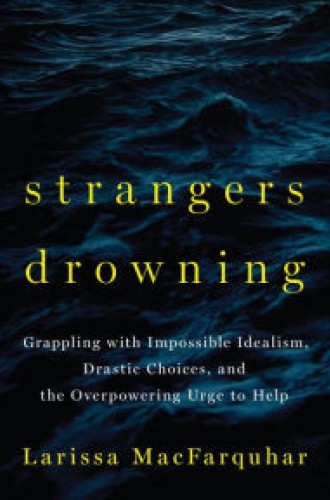Too good for this world
If three people are drowning, your mother in one location and two strangers in another, should you save your mother or the two strangers? Most people believe you should follow your natural inclination and save your mother. But some follow the argument of influential utilitarian Peter Singer, who claimed that your moral duty is to save the two strangers and thus double the good your action causes.
Larissa MacFarquhar, a staff writer at the New Yorker, explores extreme altruism with elegance and empathy. She uses interview-based stories to set forth detailed descriptions of people she calls “do-gooders”—those who are willing to sacrifice family, friends, wealth, and their own well-being to meet the needs of strangers. Interspersed with these engaging stories, she raises psychological and ethical questions, explores the motives and mental health of do-gooders, and examines how others respond to extreme altruism.
One of MacFarquhar’s most compelling stories is about Dorothy Granada, a Mexican-Filipino woman who grew up in central Los Angeles. She was neglected by her mother and abused by her father. During a church service in 1978, Dorothy was overwhelmed by Jesus’ call to resist violence and stand with the poor. She joined a group opposing war, the death penalty, and nuclear power. After being arrested and jailed several times, she met fellow activist Charles Gray.





